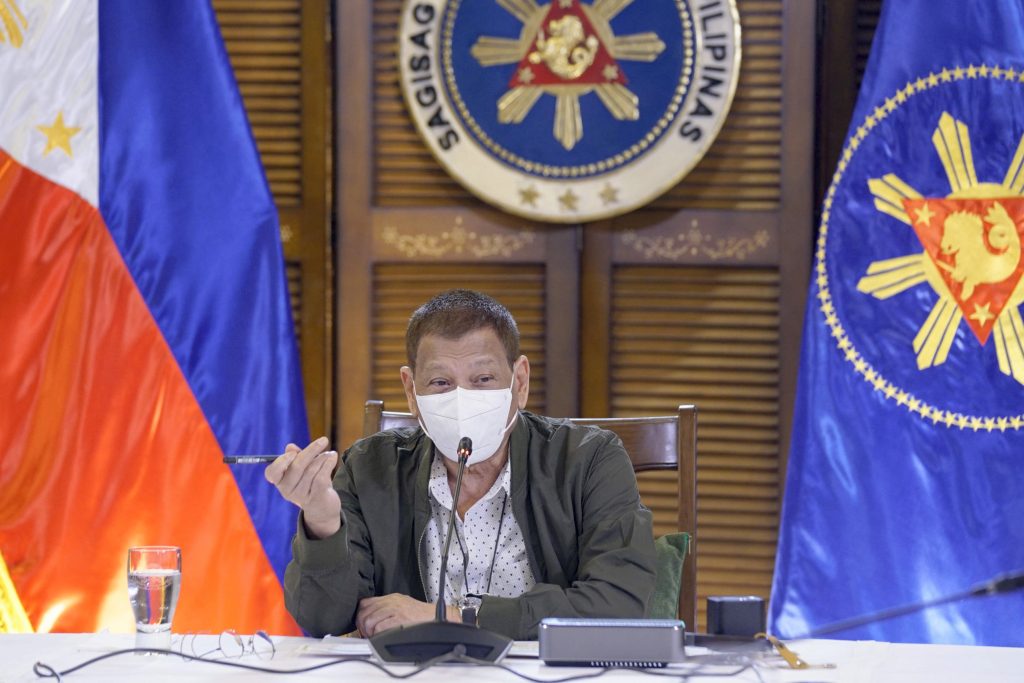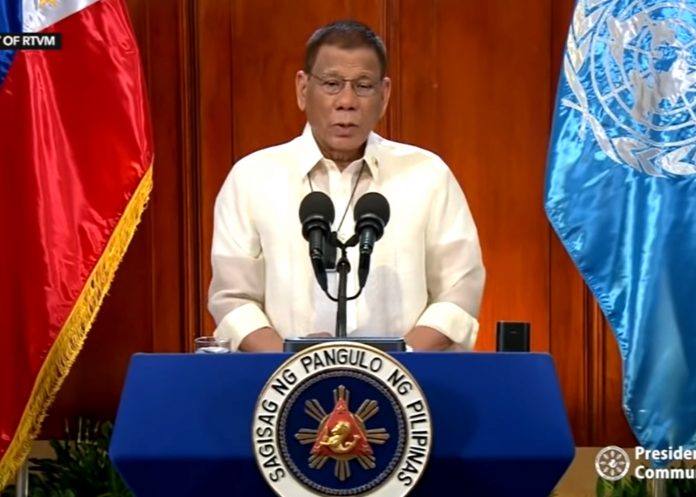My first impression: he seemed rather stiff, visibly distraught, altogether disengaged.
I don’t blame him. It was his first at the United Nations. Likewise, President Rodrigo Duterte’s long line of tirades against the UN may have put him in a very awkward, if not laughable, position.
Thanks to Jodesz Gavilan of Rappler, these tirades against the UN have been well documented: “You son of a bitch, UN. You can’t even solve the killings there in the Middle East” (June 2, 2016); “I would like also to just say, why would the United Nations be so easy to be swayed into interfering in the affairs of this Republic?” (August 17, 2016); “Take us out, you have not done anything. When were you here the last time? Never. Except to criticize. Food for the world? There’s the world but there’s no food. World hunger organization, maybe. When have you done a good deed to my country?” (August 21, 2016); “That’s so rude,” referring to UN Special Rapporteur Agnes Callamard, “Do not do that because you are addressing me as president, and you’re pointing to the police structure […] Is she crazy?” (August 23, 2016; “Go complain to the UN, I’ll even burn it down if you want. If I go to America, I’ll burn that devil” (December 17, 2017); and “United Nations serves no purpose actually, for mankind…With all its inutility, it hasn’t prevented any war, it hasn’t prevented any massacre” (January 26, 2018).
There’s a lot more where that came from.
Besides, the teleprompter must’ve been placed at a distance that made it difficult for the President to read each word clearly.
Semblance of respectability
I, however, like the fact that he looked sterling, dignified, almost presidential. This is quite rare given the long line of press conferences where Duterte’s appearance reflected that of a Fernando Poe Jr. villain than the Philippine Republic’s Chief Executive.
The barong was traditional, well-crafted from where I was sitting, and fit him quite nicely. Not those pseudo-fashionable and ostentatiously designed types which scream “I’m Filipino!” at the top of its piña-spun lungs. Whoever chose it for the president should be up for a raise.
Even better is the fact that the speech rung differently from the commonplace ramblings—incoherent at best—Duterte is notorious for. He also avoided doing his tired, shopworn ad libs when delivering official addresses.
Someone deep within the Malacañang circle must’ve warned the president of how foolish he would look on the world stage should he choose to fly off to Neverland.
Whoever wrote the speech (some believe it’s Foreign Affairs secretary Teddy Boy Locsin) was deadest at leaving the UN with an image of Duterte that’s, at the very least, respectable. He was 65% successful, thereabouts.
The bombshells
The overall delivery, well, that’s something his communications experts should look into. Seriously. There was something funereal about the way the words were read, like reading out of an 1826 obituary, albeit without the weeping and gnashing of teeth. The flow, though, was consistent, hardly engaging but worth listening to.
The substance of the speech was anything but laissez-faire. Along the way he dropped a few explosive statements, quite unexpected by those who are familiar with how Duterte spews fire and brimstone, more so on the issue of China’s incursions in the West Philippine Sea.
He said, “The Philippines affirms that commitment in the South China Sea in accordance with UNCLOS and the 2016 Arbitral Award. The Award is now part of international law, beyond compromise and beyond the reach of passing governments to dilute, diminish or abandon.
“We firmly reject attempts to undermine it. We welcome the increasing number of states that have come in support of the award and what it stands for – the triumph of reason over rashness, of law over disorder, of amity over ambition. This – as it should – is the majesty of the law.”
The Award is now part of international law, beyond compromise and beyond the reach of passing governments to dilute, diminish or abandon. These are strong words, strong enough, perhaps, to ruffle the feathers of the Chinese Communist Party.
How these words will stand the test of time, the curlicues of geopolitics, and Duterte’s tendency to renege on his statements, however, remains to be seen. Xi Jinping must be burning his morning toasts by now.

On the matter of terrorism, it was expected of Duterte to do all in his power to justify the controversial Anti-Terrorism Law.
“The Marawi siege,” he said, “where foreign terrorist fighters took part, taught us that an effective legal framework is crucial. Our 2020 Anti-Terrorism Act shores up the legal framework by focusing on both terrorism and the usual reckless response to it. Its enactment was done pursuant to our commitment and the strict adherence to the relevant Security Council resolutions and the UN Global Counter-Terrorism Strategy.
“Most importantly, we remain committed to rebuild stricken communities and address the root causes of terrorism and violent extremism in my country. We must remain mindful of our obligations and commitment to the Charter of the United Nations and as amplified by the 1982 Manila Declaration on the Peaceful Settlement of International Disputes.”
Here’s one of several problems in his defense of the Anti-Terrorism Law as an act “pursuant to our commitment and the strict adherence to the relevant Security Council resolutions and the UN Global Counter-Terrorism Strategy”.
According to the UN Office of Counter-Terrorism, there are four pillars to address the problem of terror acts and terrorists: (1) addressing the conditions conducive to the spread of terrorism; (2) Measures to prevent and combat terrorism; (3) Measures to build states’ capacity to prevent and combat terrorism and to strengthen the role of the United Nations system in that regard; and (4) Measures to ensure respect for human rights for all and the rule of law as the fundamental basis for the fight against terrorism [emphasis, mine].
While all top three measures were set in place in the Anti-Terrorism Law, it is clear from recent discussions on the said law that the fourth pillar—measures ensuring rule of law and human rights for all as “fundamental basis for the fight against terrorism”—seems to be lacking.
As for rebuilding stricken communities in the fight against terrorists, the Islamic City of Marawi has remained a wasteland since the clash of May 22, 2017.
Not a friend to human rights
Instead, police and military agencies have used the said law to justify their red-tagging and terrorist-tagging activities online and offline, even to the extent of creating fake social media accounts to label activists, critics, and journalists as either communists or terrorists.
As Facebook clamped down on these fraudulent pages, Armed Forces of the Philippines (AFP) chief of staff Gilbert Gapay demands that FB restores the pages. His reason: the “Save our Children” account, he claims, is an advocacy group by parents whose children had been lured to enlist themselves as members of the New People’s Army.
The real bombshell came in the form of Duterte claiming that a number of interest groups have “weaponized human rights,” even associating the “use of children as human shields” as an example of it.
“These detractors,” Duterte said, “pass themselves off as human rights advocates while preying on the most vulnerable humans; even using children as soldiers or human shields in encounters. Even schools are not spared from their malevolence and anti-government propaganda. They hide their misdeeds under the blanket of human rights but the blood oozes through.”
This is an absolute and total falsehood. This is a blatant labeling of human rights advocates as terrorists. It would do well for the United Nations to pass this off as another one of Duterte’s mindless tirades against rights advocates.
Duterte is not and will never be a friend to human rights. And it shows in his own words.
I’m fine with Duterte cleaning up nicely on the global stage. I can look past the largely dissonant oratorical flourish, the turtle-paced and somewhat pedestrian delivery of his speech. I have given up hoping that this man of gloomy disposition will ever grasp the infinite nuances of what it takes to be presidential.
What I will not stand for is his attempt to label human rights advocates as terrorists on the global stage. What the world has witnessed is not a leader out to save his country from those who wish to destroy it. That was Duterte, the dictator.
Joel Pablo Salud is an editor, journalist and the author of several books of fiction and political nonfiction. The views and opinions expressed in this article are those of the author and do not necessarily reflect the official editorial position of LiCAS.news.









